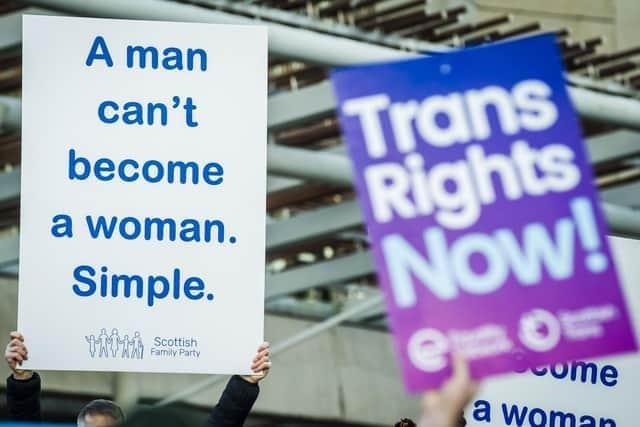Scottish Secretary Alister Jack did not act 'irrationally' in blocking gender law, UK Government argues
Scottish secretary Alister Jack “did not act irrationally” by blocking Scotland’s controversial gender reforms and there were “reasonable grounds” to believe the legislation would have an adverse effect, the UK Government will tell Scotland’s highest civil court.
It has published its full legal arguments ahead of a three-day hearing at the Court of Session next month.
Advertisement
Hide AdAdvertisement
Hide AdMSPs passed the Gender Recognition Reform (Scotland) Bill in December last year, approving changes which would allow trans people to change their legal gender without a medical diagnosis.


However, the move proved hugely controversial. It was blocked by Mr Jack the following month using a never-before-utilised section of the 1998 Scotland Act. He argued the legislation would have an adverse impact on British equality laws.
In a 22-page petition to the Court of Session, the Scottish Government said his concerns were "irrational". It said he had made an “error of law”, that his concerns over safeguards were "irrelevant" and that his stated reasons for making the section 35 order were “inadequate”, making it “unlawful”.
In a note of argument published ahead of the hearing, Lord Stewart, Advocate General for Scotland, acting for Mr Jack, said: “In making the order, the Secretary of State did not act irrationally on the basis of the evidence which was before him or by taking into account any irrelevant considerations.” He said the reasons provided were “adequate to allow the reasonably informed reader to understand the basis for making the order”.
Lord Stewart continued: “Section 35 exists as part of the devolution framework. It forms part of a suite of carefully crafted checks and balances on the devolution of law-making power from the UK Parliament to the Scottish Parliament, which includes, but goes beyond, the question of competency alone.”
He said Mr Jack “did not err in law”, and the Scottish Government’s argument “relies upon an incorrect, formalistic and unduly narrow interpretation of section 35”.
Lord Stewart said the “plain intent and purpose” of the Scotland Act was that section 35 “should be exercisable by the Secretary of State in areas of devolved competence, provided only that the specified preconditions are met”.
He added: “If that is so, there is nothing whatever to suggest that the UK Parliament intended some additional, unspecified constraint on the exercise of the power on the basis that the context involved a ‘policy disagreement’ (as the issue is framed by the petitioners) between the UK and Scottish governments.
Advertisement
Hide AdAdvertisement
Hide Ad“The existence of the power in section 35 explicitly recognises the possibility that devolved policy may have an adverse impact on the operation of the law as it applies to reserved matters (as in the present case).”
It comes after it emerged a senior judge has granted LGBT+ organisations permission to intervene in the legal challenge. Charities such as Stonewall, Gendered Intelligence and the Institute for Constitutional and Democratic Research (ICDR) will be able to present written evidence to the court on the adverse consequences of the UK Government’s decision.
The hearing is expected to begin at Edinburgh’s Court of Session on September 19, with the Scottish Government presenting its case first.
Comments
Want to join the conversation? Please or to comment on this article.
